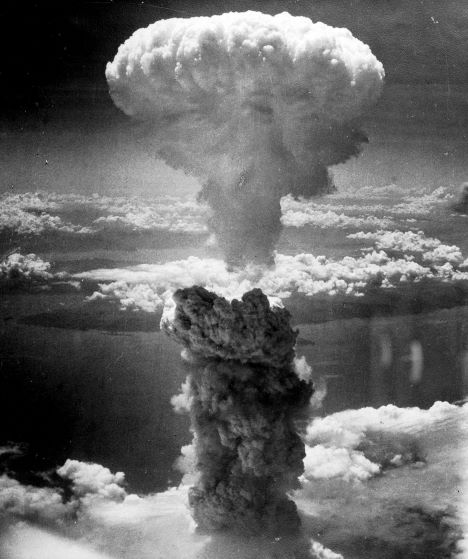First Edition
2 Peter 3:10-14 Is Interpreted by Christians in
a Variety of Radical Ways—But It is
Essential (and Necessary) to Pin Down the
Meaning at the Time It Was Written
Scripture passage: “But the day of the Lord will come as a thief in the night; in the which the heavens shall pass away with a great noise, and the elements shall melt with fervent heat, the earth also and the works that are therein shall be burned up. 11 Seeing then that all these things shall be dissolved, what manner of persons ought ye to be in all holy conversation and godliness, 12 Looking for and hasting unto the coming of the day of God, wherein the heavens being on fire shall be dissolved, and the elements shall melt with fervent heat? 13 Nevertheless we, according to his promise, look for new heavens and a new earth, wherein dwelleth righteousness. 14 Wherefore, beloved, seeing that ye look for such things, be diligent that ye may be found of him in peace, without spot, and blameless.“—The Apostle Peter
by Mark Mountjoy
Introductory Remarks
Each person has a purpose from God, even if we do not know what it is yet. Nobody was born just to eat, sleep, work, and make money. We should search and find exactly why God made us and what He wants us to do in life.
I found out my purpose from God in 1981. My work now focuses on resolving confusion many Christians have about Jesus' promise to return soon, during the first Christians' lifetimes. I wake up every day thinking about this, since I care so much. And it's ok if other Christians do not rush to ask my conclusions about Christ's return promise. But there is some danger I could fail by lacking imagination or interesting explanation. Rightly, most believers feel scared to hear Jesus already returned in the first century skies of Judea just a few decades after He left earth. Challenging assumptions takes patience and care. My main goal stays faithfully matching my best understanding to Scripture, even when uncomfortable. God's purpose for my life calls for humility first in pursuing truth, even amidst big questions . . .
First off, someone might seem really strange if they believe this stuff. Why would anyone think about this now? Especially when we look at how messed up the world is and what the Bible says will happen when Jesus comes back. These ideas make it hard for people to trust what we've always believed about the end times.
Even with the idea that Jesus will come back in the future, many Christians find it super hard to understand the book of Revelation. It seems so confusing and open to different interpretations. We're talking about ancient books like Tobit, Maccabees, and others that most world Christians have but most American Christians do not. Some people want us to think these books should not be in the Bible. But without them it is tough to figure out what to believe about prophecy, the Bible, and if Jesus did come back or will come back.
Furthermore, we are discussing people and events that many Christians haven't heard about before, like Judas the Maccabee and the wars in ancient Judea. It's all connected to the Bible's prophecies, but it goes against what we've always been taught. It feels wrong to think that what we've been waiting for might have already happened ages ago. It's scary and makes us doubt if this is really from God.
But even with all these doubts, I'm asking fellow Christians to give Jesus and the Bible another chance. How? By taking a closer look at the book of Daniel and the Bible's history. We need to realize that the Old Testament focuses mainly on Hebrew history, not all of humanity's history. Here's where things get tricky: The Jews thought the fourth kingdom in Daniel's prophecy was the Romans, but it might have been their own rebellion against the Greeks. This decision leads to different outcomes.
If we follow the Jewish rebellion, it leads to wars and the rise of Christianity. But if we follow the Roman road, it leads to disappointment for both Jews and Christians. What I'm saying is, Jesus didn't fail. He died, was buried, and rose again, just like the Bible says. His return happened right on time, as it was supposed to.
 Let's talk about 1 and 2 Peter, written around thirty years after Jesus talked about the end times in the Olivet Discourse. In 1 Peter 4:7 and 2 Peter 3:10-13, both Silas and the Apostle Peter still thought the end was near. But if nothing happened, it would be confusing and disappointing for Christians. So, here's the question for Christians: In 2 Peter 3:10, is Peter talking about the end of the world or something else, like the destruction of the Second Temple? We can understand this better by looking at what the Apostle Paul said in 2 Corinthians 5:1-4. Ask God to help you understand. He'll give you wisdom if you ask.
Let's talk about 1 and 2 Peter, written around thirty years after Jesus talked about the end times in the Olivet Discourse. In 1 Peter 4:7 and 2 Peter 3:10-13, both Silas and the Apostle Peter still thought the end was near. But if nothing happened, it would be confusing and disappointing for Christians. So, here's the question for Christians: In 2 Peter 3:10, is Peter talking about the end of the world or something else, like the destruction of the Second Temple? We can understand this better by looking at what the Apostle Paul said in 2 Corinthians 5:1-4. Ask God to help you understand. He'll give you wisdom if you ask.
Usually, people use 2 Corinthians 5:1-4 at funerals, but if we ask God, we might see it differently. This leads us to wonder what Silas and Peter were expecting about the end of the world in the first century. If they were right, it means God planned to destroy the earth around forty years after Jesus died, which was a long time ago. Why would God do that so soon after Jesus died? And if He threatened to do it then, why didn't He? Is the Second Coming really about God destroying the earth, or is it about changing things, like what was happening in Jerusalem? I'm asking Christians to pray and think about whether 2 Peter 3 isn't talking about the destruction of a pattern, not the end of the world. I understand it's hard to talk about these things when we don't agree on what they mean. Some people have even been mean to me because of what I  believe, but I'm not mad about it.
believe, but I'm not mad about it.
I've been told to leave churches and called crazy for what I believe. It hurt, but I'm still asking you to think about what the Bible really means about this destruction. If what Jesus said hasn't happened yet, what does that mean for our faith? It's hard to trust if what the Bible says about the future isn't true. We keep saying things will happen, but they don't. It's like we're just saying words.
When I first realized Jesus might have been right about things, I thought other Christians would be happy. But some were really angry. I'm open to talking about this with anyone who's interested. We can discuss our ideas respectfully and try to understand each other. I'm looking for Christians who wonder about passages like John 21:21-24, Romans 13:11-12, and Revelation 22:10. Let's talk about it and see where it leads.
*“All of the neighboring countryside is denuded of whatever trees remained from the siege to create the giant bonfire to burn the buildings of the Temple to the ground. The intense heat from the fire causes the moisture in the limestone to expand and it explodes like popcorn, producing a chain reaction of destruction. In a day’s time, the magnificent Temple is nothing but rubble.” Source: History Crash Course #35: Destruction of the Temple
Related
Christians Talking Past Each Other: An
Eisegesis Versus Exegesis of 2 Timothy 2:16-18
